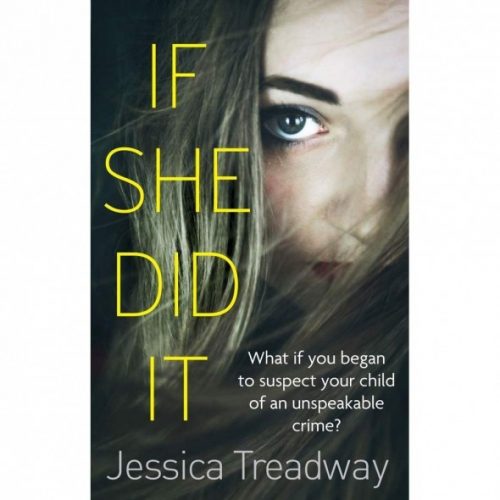
A mother knows her daughter. Doesn’t she?
Obviously, Hanna knows her youngest daughter, Dawn, isn’t perfect, but who is? Hanna is determined to give her the benefit of the doubt, even when no-one else will – even when everyone else believes Dawn was involved in a plot to murder Hanna and her husband, Joe.
Let’s hope Hanna is right, as her life is about to depend on it…
What’s it about?
When socially awkward and intellectually weak Dawn gets a boyfriend her family are puzzled (what does he see in her?), unimpressed (who does he think he is?) but relieved (she must be normal after all).
Then Dawn’s parents are brutally attacked in their bed at night with a croquet mallet taken from their garage. Joe dies. Hanna survives, scarred, anxious and blaming Dawn’s boyfriend, Rud. Before the ambulance whisks her away, Hanna also implicates Dawn, but when she recovers from her coma, her memories of the attack are gone and Dawn has an alibi.
Rud Petty is convicted; Dawn denies knowing anything about his murderous plans; and Hanna focuses her energies on her own recovery – until Rud’s conviction is overturned and a new trial looms.
If she is to keep her husband’s killer in prison, Hanna must remember the events of that horrific night. But can she?
What’s it like?
Reflective. Questioning. Frustrating.
From the moment Dawn returns to Hanna’s life, the reader is sceptical of her motives. She is obviously lazy and grasping, alternately stupid and conniving. Yet Hanna, despite possessing another daughter who has not opted to love a sociopath, is determined to ignore or minimise Dawn’s faults, preferring to gently nudge her towards employment and tolerate her slovenliness.
What I like about this is Treadway’s psychological acuity. Hanna empathises so strongly with Dawn’s weaknesses that she is deliberately blind to her faults. When reflecting on Dawn’s amblyopia she admits that: ‘Even though I was a nurse, I hadn’t seen a problem in my own daughter. Well, I didn’t want to.’
Meanwhile Hanna’s thoughts drift to Emmett, her neighbour’s son, who is a similar age to Dawn – and who was put forward by Rud Petty’s defence team as a possible suspect in Joe and Hanna’s attack. Emmett’s mother, Pam, spends her life defending him, telling neighbours that ‘he can’t help it’. Ironically, Hanna, who suspects very strongly that Emmett is simply unpleasant, continues to protect Dawn, refusing to even admit knowing her daughter’s address to the prosecutor.
Final thoughts: did she do it?
‘We were halfway home before somebody coming the other way flashed his lights at me, and I realised we’d been driving dangerously in the dark.’
This book has also been sold under the title ‘Lacy Eye’ due to Dawn’s childhood mis-hearing of ‘lazy eye’, which becomes short-hand for Hanna refusing to see or accept the truth. Personally, I thought the answer to the ultimate question was rather obvious, though I understood everyone’s attitudes and positions. This would be a great book group read as discussing the family dynamics would be very rewarding.
The psychological insights are the real strength of this book: as frustrating as Hanna’s attitude is, (the truth has to be revealed via documents before she is able to begin to accept what happened that night,) I defy anyone to step into her shoes and act differently. After all, as Dawn says, ‘If you don’t remember, you can’t have bad memories, right?’
Read this as an exploration of a mother-daughter relationship and consider: how far would you go to protect your child?
‘If She Did It’,
Jessica Treadway,
2015, Sphere, paperback
This reminded me of the tension in the mother-daughter relationship in ‘Good as Gone’, although Gentry’s excellent debut novel is much more of a thriller.